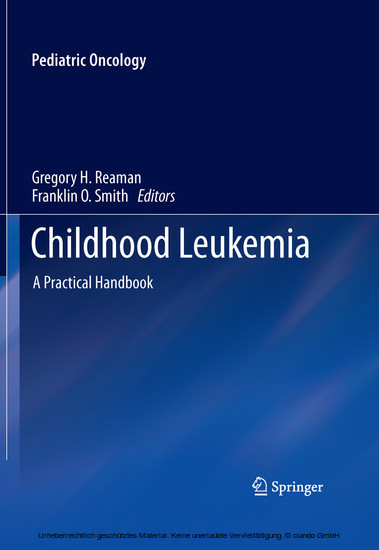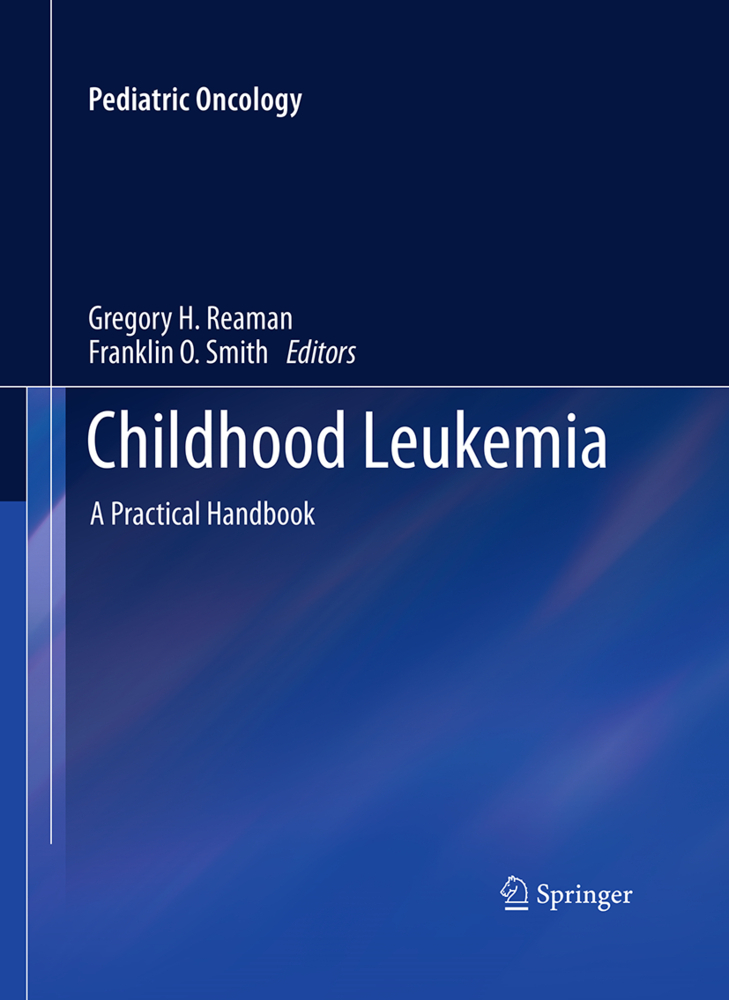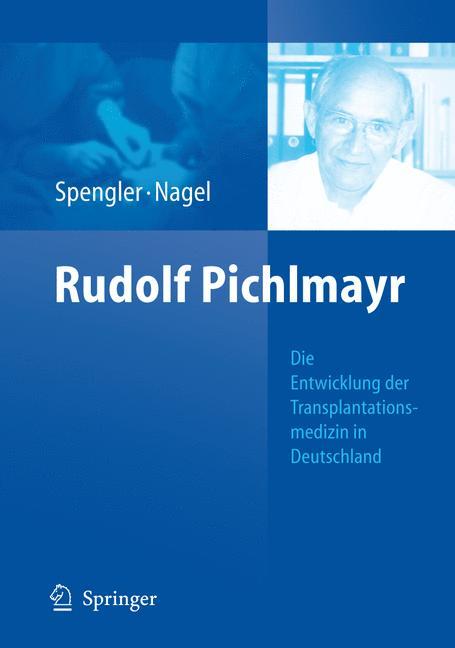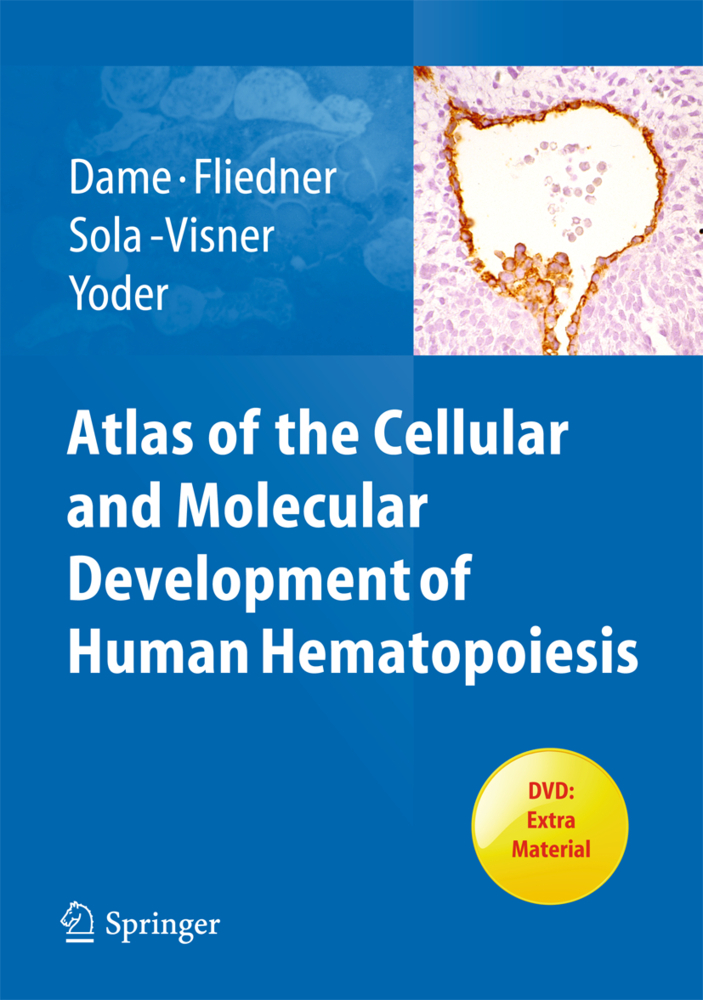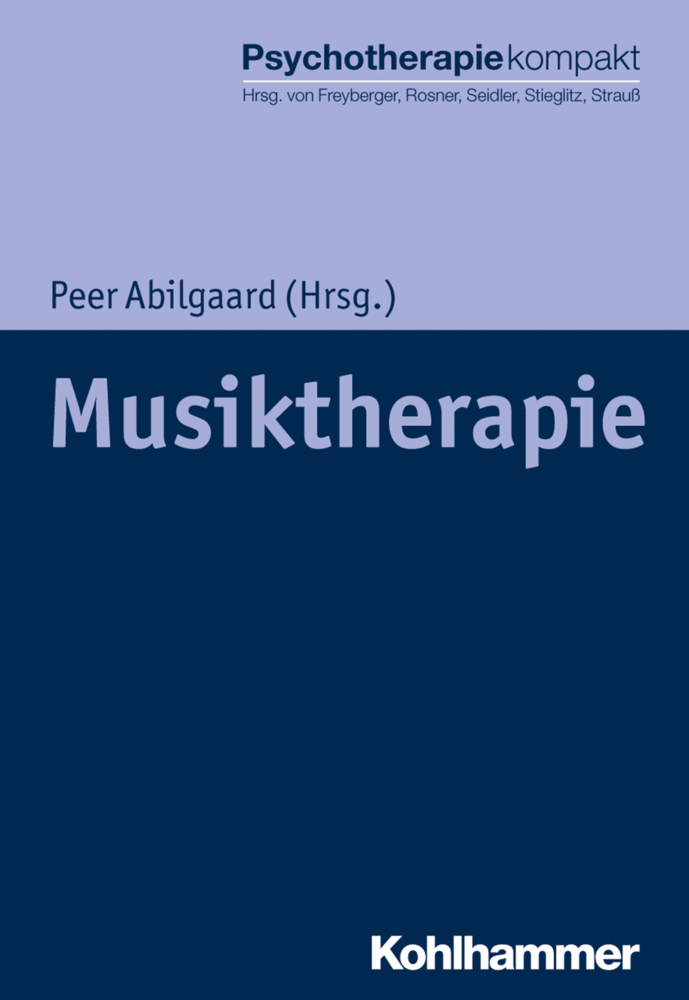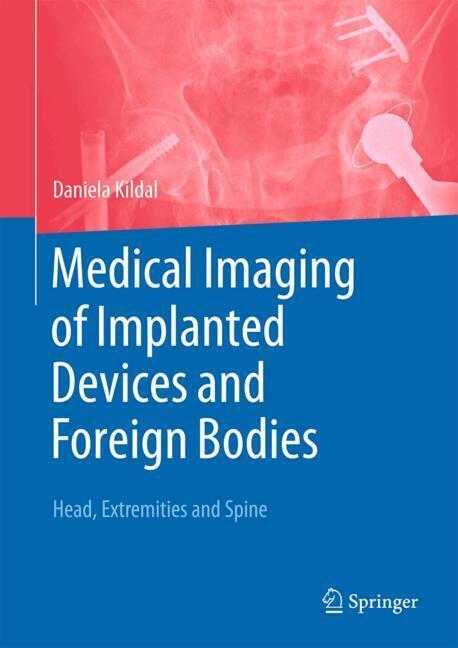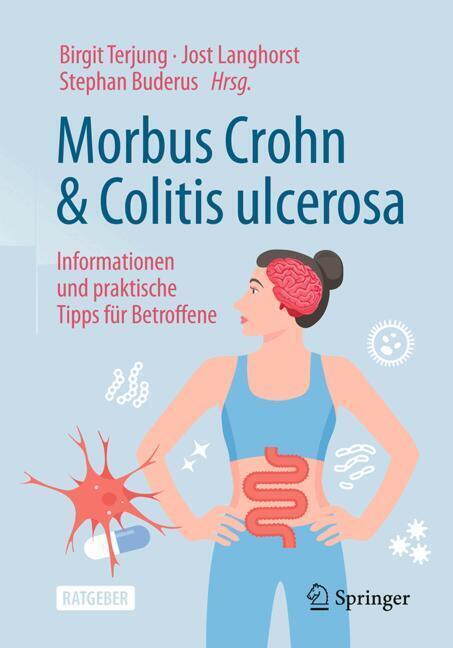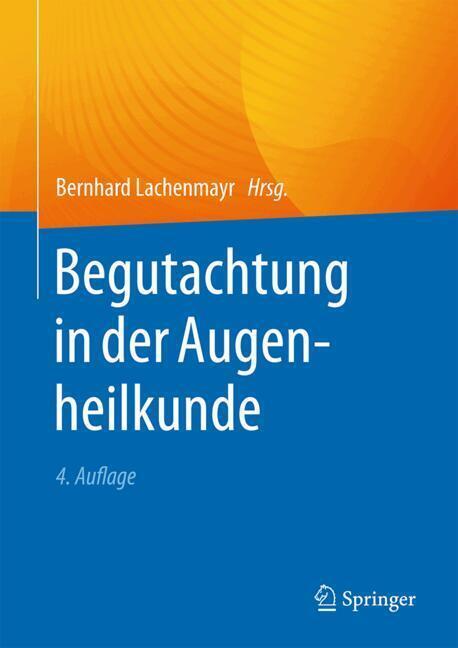This book is a comprehensive and up-to-date compendium on all aspects of childhood leukemia. After introductory chapters on the epidemiology and biology of pediatric leukemia, treatment considerations are extensively reviewed, with emphasis on the use of risk-adjusted treatment approaches. Promising targeted agents are discussed, and strategies for the development of new agents are appraised. The late effects of leukemia and its therapy are then considered in depth, with due attention to management of the psychosocial impact of the disease. Finally, global strategies to improve leukemia care and outcome are reviewed, and future directions discussed. The authors are internationally recognized experts and offer a largely evidence-based consensus on etiology, biology, and treatment. This handbook has far-reaching applicability to the clinical diagnosis and management of pediatric leukemia and will prove invaluable to specialists, generalists, and trainees alike.
Gregory H. Reaman, M.D., is Chair of the Children's Oncology Group (COG) since its inception in 2000 resulting from the merger of four legacy pediatric cancer research organizations, is comprised of over 200 member institutions, dedicated to clinical, translational, and epidemiology research in childhood cancer. Dr. Reaman is a Professor of Pediatrics at The George Washington University School of Medicine and Health Sciences and a member of the Division of Hematology-Oncology at the Children's National Medical Center in Washington, D.C., which he directed for nearly 18 years, and Executive Director Emeritus of the Center for Cancer and Blood Disorders. Dr. Reaman serves or has served on the Editorial Boards of Leukemia, Journal of Clinical Oncology, Journal of Pediatric Hematology/Oncology, Pediatric Blood and Cancer, The Oncologist, Cancer, and Physicians Data Query (PDQ), National Cancer Institute as well as the ASCO Cancer Foundation's www.cancer.net. He has served as an Associate Editor of Cancer and Leukemia and Lymphoma. Previously, he served on the Board of Directors of the American Cancer Society and chaired its Task Force on Children and Cancer. Dr. Reaman served on the Board of Directors of the American Society of Clinical Oncology and has served on the ASCO Patient Education Committee, the Education and Program Committees, the Grant Selection Committee, and was the Chair of the ASCO Membership Committee. Also, he was a member of the Food and Drug Administration's Oncologic Drugs Advisory Committee and continues as a member of its Pediatric Subcommittee. He was a member of the NIH Roadmap Working Group. Additionally, he is a member of the Alliance for Childhood Cancer, a member of the Data Safety Monitoring Board of the National Cancer Institute's Clinical Oncology Program, and a member of the NCI's Translational Research Working Group. He is the author of more than 250 peer-reviewed manuscripts resulting from long-standing interests in acute leukemia biology and treatment and development of new drugs for pediatric cancer. Franklin O. Smith, III, M.D., is Vice-Chair of the Children's Oncology Group (COG). The COG, since its inception in 2000 resulting from the merger of four legacy pediatric cancer research organizations, is comprised of over 200 member institutions, dedicated to clinical, translational, and epidemiology research in childhood cancer. Dr. Smith is the Marjory J. Johnson Professor of Pediatrics at the University of Cincinnati College of Medicine. He has been the Director of the Division of Hematology/Oncology at Cincinnati Children's Hospital Medical Center (CCHMC) since 2001. He also serves as the Director of the Pediatric Hematology/Oncology Fellowship Training Program at CCHMC. Dr. Smith serves or has served on the Editorial Boards of Blood, the British Journal of Haematology, the Journal of Hematotherapy and Stem Cell Research, and Physicians Data Query (PDQ), National Cancer Institute. He has served as a Section Editor of Cancer Research T
Gregory H. Reaman, M.D., is Chair of the Children's Oncology Group (COG) since its inception in 2000 resulting from the merger of four legacy pediatric cancer research organizations, is comprised of over 200 member institutions, dedicated to clinical, translational, and epidemiology research in childhood cancer. Dr. Reaman is a Professor of Pediatrics at The George Washington University School of Medicine and Health Sciences and a member of the Division of Hematology-Oncology at the Children's National Medical Center in Washington, D.C., which he directed for nearly 18 years, and Executive Director Emeritus of the Center for Cancer and Blood Disorders. Dr. Reaman serves or has served on the Editorial Boards of Leukemia, Journal of Clinical Oncology, Journal of Pediatric Hematology/Oncology, Pediatric Blood and Cancer, The Oncologist, Cancer, and Physicians Data Query (PDQ), National Cancer Institute as well as the ASCO Cancer Foundation's www.cancer.net. He has served as an Associate Editor of Cancer and Leukemia and Lymphoma. Previously, he served on the Board of Directors of the American Cancer Society and chaired its Task Force on Children and Cancer. Dr. Reaman served on the Board of Directors of the American Society of Clinical Oncology and has served on the ASCO Patient Education Committee, the Education and Program Committees, the Grant Selection Committee, and was the Chair of the ASCO Membership Committee. Also, he was a member of the Food and Drug Administration's Oncologic Drugs Advisory Committee and continues as a member of its Pediatric Subcommittee. He was a member of the NIH Roadmap Working Group. Additionally, he is a member of the Alliance for Childhood Cancer, a member of the Data Safety Monitoring Board of the National Cancer Institute's Clinical Oncology Program, and a member of the NCI's Translational Research Working Group. He is the author of more than 250 peer-reviewed manuscripts resulting from long-standing interests in acute leukemia biology and treatment and development of new drugs for pediatric cancer. Franklin O. Smith, III, M.D., is Vice-Chair of the Children's Oncology Group (COG). The COG, since its inception in 2000 resulting from the merger of four legacy pediatric cancer research organizations, is comprised of over 200 member institutions, dedicated to clinical, translational, and epidemiology research in childhood cancer. Dr. Smith is the Marjory J. Johnson Professor of Pediatrics at the University of Cincinnati College of Medicine. He has been the Director of the Division of Hematology/Oncology at Cincinnati Children's Hospital Medical Center (CCHMC) since 2001. He also serves as the Director of the Pediatric Hematology/Oncology Fellowship Training Program at CCHMC. Dr. Smith serves or has served on the Editorial Boards of Blood, the British Journal of Haematology, the Journal of Hematotherapy and Stem Cell Research, and Physicians Data Query (PDQ), National Cancer Institute. He has served as a Section Editor of Cancer Research T
1;Childhood Leukemia;2 1.1;Copyright Page;3 1.2;Preface;4 1.3;Acknowledgments;5 1.4;Contents;6 1.5;Part I:Genetics and the Epidemiologyof Leukemia in Children;8 1.5.1;1: Epidemiology of Acute Childhood Leukemia;9 1.5.1.1;1.1 Classification and Natural History;9 1.5.1.1.1;1.1.1 Classification: Immunophenotype, Morphology;9 1.5.1.1.2;1.1.2 Classification: Molecular and Cytogenetics;10 1.5.1.1.2.1;1.1.2.1 Acute Lymphoid Leukemias;10 1.5.1.1.2.2;1.1.2.2 Acute Myeloid Leukemias;11 1.5.1.1.3;1.1.3 Natural History of Leukemia;12 1.5.1.2;1.2 Incidence, Survival, and Trends;13 1.5.1.2.1;1.2.1 International Incidence Rates;13 1.5.1.2.2;1.2.2 U.S. Incidence Rates and Trends;13 1.5.1.2.3;1.2.3 Survival;16 1.5.1.3;1.3 Risk Factors for Childhood Leukemia;17 1.5.1.3.1;1.3.1 Genetic Syndromes;17 1.5.1.3.2;1.3.2 Environmental and Other Risk Factors for Childhood Leukemia;17 1.5.1.3.2.1;1.3.2.1 Ionizing Radiation;18 1.5.1.3.2.2;1.3.2.2 Prior Chemotherapy;18 1.5.1.3.2.3;1.3.2.3 Reproductive History;18 1.5.1.3.3;1.3.3 Lifestyle Factors;19 1.5.1.3.3.1;1.3.3.1 Cigarette Smoking;19 1.5.1.3.3.2;1.3.3.2 Alcohol Consumption;19 1.5.1.3.3.3;1.3.3.3 Occupational Exposures;19 1.5.1.3.3.4;1.3.3.4 Maternal/Child Diet;19 1.5.1.3.3.5;1.3.3.5 Vitamin Supplementation;20 1.5.1.3.3.6;1.3.3.6 Pesticides;20 1.5.1.3.3.7;1.3.3.7 Infections;20 1.5.1.3.3.8;1.3.3.8 Birth Weight;21 1.5.1.3.4;1.3.4 Genetic Susceptibility;22 1.5.1.4;1.4 Challenges and Future Directions;23 1.5.1.4.1;1.4.1 Improvements in Identification of Cases and Controls for Studiesin the United States;23 1.5.1.4.1.1;1.4.1.1 Cases;23 1.5.1.4.1.2;1.4.1.2 Controls;24 1.5.1.4.2;1.4.2 Opportunities for Validation;24 1.5.1.4.2.1;1.4.2.1 Neonatal Blood Spots;24 1.5.1.4.2.2;1.4.2.2 Maternal-Fetal Cohort Studies;25 1.5.1.4.3;1.4.3 Comprehensive Use of Animal Models to Assess Exposure/Cancer Relationships;25 1.5.1.5;1.5 Conclusion;26 1.5.1.6;References;27 1.6;Part II:Biology of Pediatric Leukemia;33 1.6.1; 2: The Biology of Acute Lymphoblastic Leukemia;34 1.6.1.1;2.1 Introduction;34 1.6.1.2;2.2 The Cellular Biology of Acute Lymphoblastic Leukemia (ALL);35 1.6.1.2.1;2.2.1 Lymphoid Development and Immunophenotype of Acute Lymphoblastic Leukemia;35 1.6.1.2.1.1;2.2.1.1 Lymphoid Development;35 1.6.1.2.1.2;2.2.1.2 B-Cell Development;36 1.6.1.2.1.3;2.2.1.3 T-Cell Development;36 1.6.1.2.1.4;2.2.1.4 Immunophenotype of Acute Leukemia;37 1.6.1.2.2;2.2.2 Antigen Receptor Genes and Clonality;38 1.6.1.2.2.1;2.2.2.1 Immunoglobulin (Ig) and T-Cell Receptor (TCR) Gene Rearrangements in ALL;38 1.6.1.2.2.2;2.2.2.2 Assessment of Clonality by PCR Amplification;39 1.6.1.2.2.3;2.2.2.3 Use of Ig and TCR Gene Rearrangements for the Detection of MRD;39 1.6.1.2.3;2.2.3 Leukemia-Initiating Cells in ALL;40 1.6.1.3;2.3 The Molecular Biology of ALL;41 1.6.1.3.1;2.3.1 Introduction to Cancer Genomics and New Technology;41 1.6.1.3.2;2.3.2 Host Susceptibility to ALL;42 1.6.1.3.2.1;2.3.2.1 Genetic Syndromes and Down Syndrome ALL;42 1.6.1.3.2.2;2.3.2.2 Germline Genetic Variation and ALL;43 1.6.1.3.3;2.3.3 Somatic Genetic Changes in ALL;43 1.6.1.3.3.1;2.3.3.1 Chromosomal Lesions and Karyotype;43 1.6.1.3.3.2;2.3.3.2 Copy Number Abnormalities;45 1.6.1.3.3.3;2.3.3.3 Gene Expression Profiling;48 1.6.1.3.3.4;2.3.3.4 Discovery of Novel Therapeutic Targets Through DNA Sequencing and Genomic Studies;51 1.6.1.3.3.5;2.3.3.5 Epigenetic Modifications and Posttranscriptional Regulation by microRNAs;53 1.6.1.4;2.4 Signaling Pathways in Childhood ALL;55 1.6.1.4.1;2.4.1 BCR-ABL Tyrosine Kinase;55 1.6.1.4.2;2.4.2 FLT-3 Receptor Tyrosine Kinase;55 1.6.1.4.3;2.4.3 JAK Tyrosine Kinase;56 1.6.1.4.4;2.4.4 Pre-B Cell Receptor;56 1.6.1.4.5;2.4.5 RAS Pathway;56 1.6.1.4.6;2.4.6 NOTCH1 Pathway;57 1.6.1.4.7;2.4.7 Therapy Targeted to Signaling Pathways;57 1.6.1.5;2.5 The Apoptotic Pathway and ALL;57 1.6.1.6;2.6 The Biology of Relapsed ALL;59 1.6.1.7;2.7 Summary;62 1.6.1.8;References;62 1.6.2;3: Biology of Acute Myeloid Leukemia;67 1.6.2.1;3.1 Introduction;67 1.6.2.2;3.2 Cytogenet
Reaman, Gregory H.
Smith, Franklin O.
| ISBN | 9783642137815 |
|---|---|
| Artikelnummer | 9783642137815 |
| Medientyp | E-Book - PDF |
| Auflage | 2. Aufl. |
| Copyrightjahr | 2011 |
| Verlag | Springer-Verlag |
| Umfang | 336 Seiten |
| Sprache | Englisch |
| Kopierschutz | Digitales Wasserzeichen |

